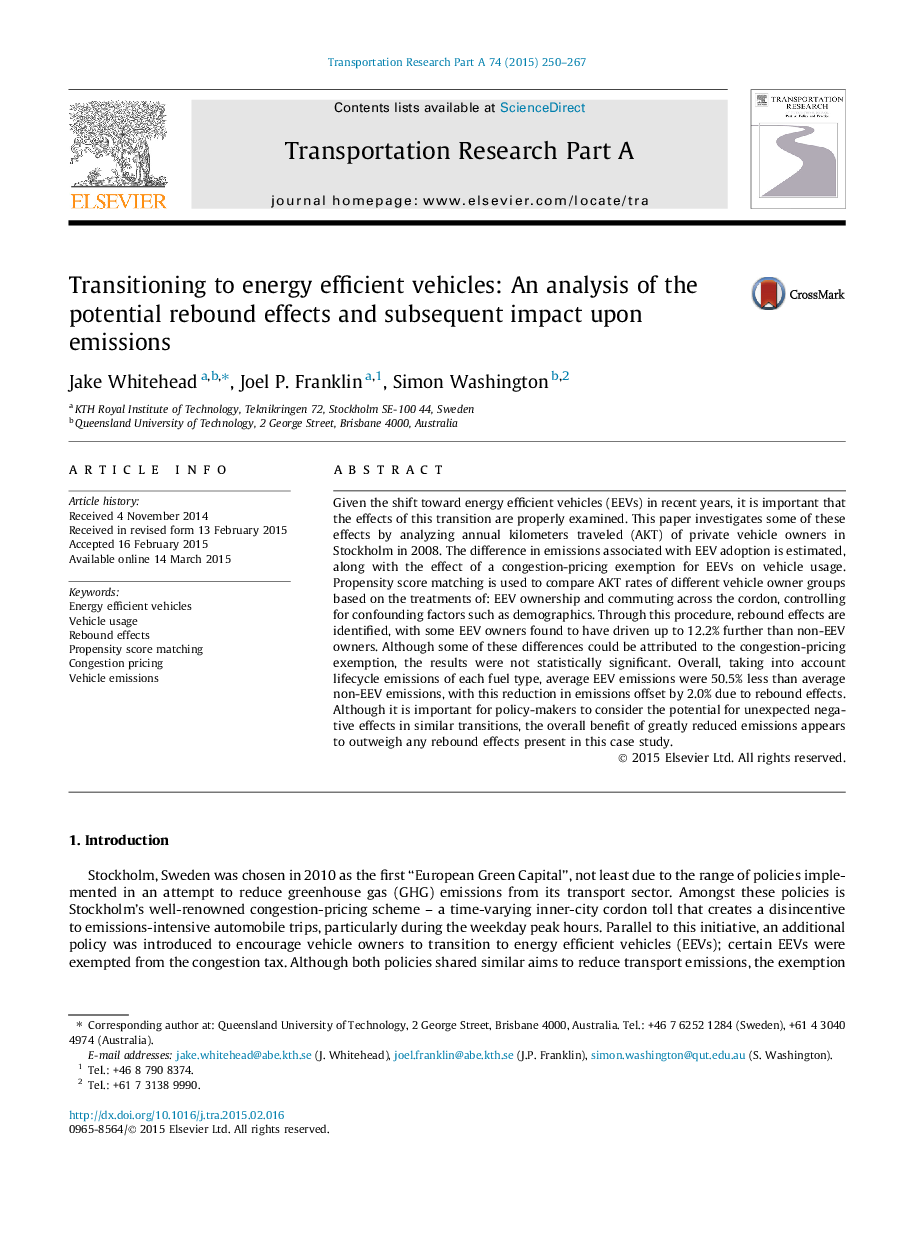| Article ID | Journal | Published Year | Pages | File Type |
|---|---|---|---|---|
| 6781324 | Transportation Research Part A: Policy and Practice | 2015 | 18 Pages |
Abstract
Given the shift toward energy efficient vehicles (EEVs) in recent years, it is important that the effects of this transition are properly examined. This paper investigates some of these effects by analyzing annual kilometers traveled (AKT) of private vehicle owners in Stockholm in 2008. The difference in emissions associated with EEV adoption is estimated, along with the effect of a congestion-pricing exemption for EEVs on vehicle usage. Propensity score matching is used to compare AKT rates of different vehicle owner groups based on the treatments of: EEV ownership and commuting across the cordon, controlling for confounding factors such as demographics. Through this procedure, rebound effects are identified, with some EEV owners found to have driven up to 12.2% further than non-EEV owners. Although some of these differences could be attributed to the congestion-pricing exemption, the results were not statistically significant. Overall, taking into account lifecycle emissions of each fuel type, average EEV emissions were 50.5% less than average non-EEV emissions, with this reduction in emissions offset by 2.0% due to rebound effects. Although it is important for policy-makers to consider the potential for unexpected negative effects in similar transitions, the overall benefit of greatly reduced emissions appears to outweigh any rebound effects present in this case study.
Related Topics
Physical Sciences and Engineering
Engineering
Civil and Structural Engineering
Authors
Jake Whitehead, Joel P. Franklin, Simon Washington,
